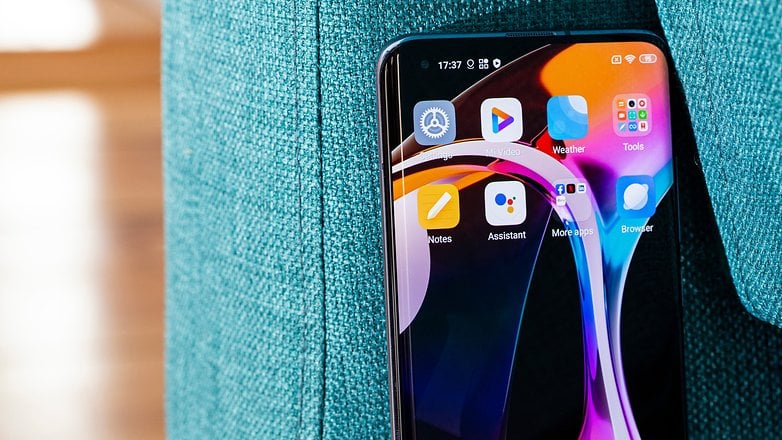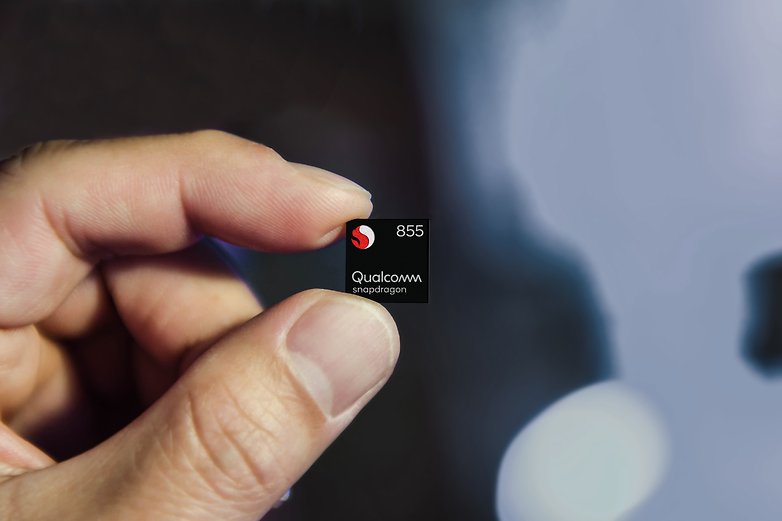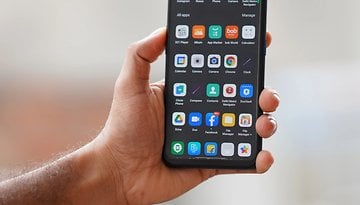Why data scandals don't hurt smartphone manufacturers


Actually we should be upset. Forbes has found, after analysis by two independent experts, that Xiaomi tells its partners whether you use your browser to access porn sites, even when incognito mode is active. I assume, however, that the manufacturer will sell its devices like sliced bread regardless. My experience and current figures speak for that.
The industry service Strategy Analytics reports that the smartphone industry has shrunk by 17 percent. Outlier Xiaomi is not participating in the crisis, and is the only manufacturer not to sell fewer devices than last year. Compared to Samsung, Huawei, and Co., the trend for Xiaomi even looks positive. The manufacturer is grabbing market share from its competitors. Xiaomi is thus securing a larger piece of a diminishing cake.
Ironically, at the same time, the press should be upset that Xiaomi's browser shares confidential information with Chinese web companies such as Alibaba. Two independent experts have found out, according to the online magazine Forbes, that the browser analyzes user behavior and sends data in a poorly encrypted form. Everything is anonymized, but extensive metadata allow quick conclusions to be drawn about the true identity of the user.
There is no such thing as bad publicity
Xiaomi has meanwhile patched the browser and denied several charges of the experts and the journalist. The major damage had already been done, however. In Germany, for example, the click-happy online magazines Heise and Golem have already taken up the issue. Hundreds of thousands now associate "Xiaomi" with "data protection problem".
But some of those readers hadn't even heard of Xiaomi before. They are now potentially even more interested in the brand, especially since the company presents itself issued its counter-communication quite cleverly and openly.
The excitement will only make many people shrug their shoulders anyway, since the current problem was easy to avoid. You can simply use a different browser. Hardly anyone will go around questioning Xiaomi's moral integrity because of it.
The same debate has been attempted for years by privacy-sensitive journalists and experts. OnePlus data scandals, PR failures, and questionable decisions gave have already become memes on Reddit. This manufacturer has thus, in many ways, messed up with its community. Xiaomi should at least make sure not to imitate this.
However, small data protection scandals will not affect Xiaomi in the foreseeable future, as the overall situation in the smartphone sector is hopeless anyway. A loquacious incognito browser won't make the situation any worse today.

Privacy, what is that?
In the meantime, it has become known that at least social networks and some countries create, store, and evaluate or market quite extensive profiles of us. At the same time, however, sympathy for the devil has spread.
- Facebook/Insta/WhatsApp connect us with friends
- Google/Apple/Microsoft/Amazon synchronize our photos/contacts/emails/appointments
- Verizon/Vodafone/O2 somehow transport our data from A to B
- Chipsets and modems from Qualcomm/Apple/Samsung/Huawei/MediaTek somehow take care of calculating and transporting all the information
While we can evade the first three by using alternatives or VPN services, we definitely fail at the last - unless we use a Librem 5. Nicole Färber, the architect of the open-source smartphone, told us already in 2017 in an interview that mainstream smartphones make us "increasingly vulnerable". Not even governmental actors control hardware manufacturers, although they potentially have access to all the keys of our encryption.
The development of the Librem 5, however, is progressing slowly. The self-imposed open-source compulsion in hardware selection is causing a rat tail of problems that is testing the patience of the first buyers and crowdfunding supporters.

What Xiaomi really needs to do
Because Xiaomi purchases most of its chipsets from Qualcomm, the San Diego-based supplier is ultimately responsible for the privacy of Xiaomi users. If there is a privacy issue at the software level - especially if it's just a single, replaceable app - I shrug my shoulders, even though my resignation is of a different nature.
The fact that chipset manufacturers are free to do whatever they want must stop. The secrecy surrounding modem firmware must end and it must be possible to control which device accesses memory and for what purpose. Who is reading this?
At the same time, we must promote open-source computing, which is a counter-project to the obscure commercial solutions of the mainstream. And then maybe one day there will be a smartphone with real incognito mode.
And this is where mainstream vendors like Xiaomi could come in. By working with open hardware projects, they could both reduce their dependence on Qualcomm or MediaTek and significantly increase the trust of their customers (especially those interested in data protection). The budget would be there. Now all that is missing is the will.




















I own a Redmi and probably will buy another one in the future. Great specs, ditto prices. But i don't use their apps, almost all of them are disabled throug Szaki/XiaomiADBFastbootTools, especially MSA and Analytics. (Most of) the rest of the 'phoning home' is being taken care of by Blokada.
The sad reality is that Qualcomm provides more information to the open source community about its Snapdragon processors than do MediaTek, Unisoc, Apple, Samsung, Huawei and Xiaomi about their mobile processors. Almost all the phone models that have LineageOS ports are running on a Snapdragon SoC. Yes, the SoC's from NXP, Rockchip, Broadcom, Intel and AMD are better than the rest in terms of support for open source, but their processors generally aren't used in phones.
The best major phone brands in terms of their support for open source are Sony and OnePlus. However, when I looked around last year for recent mid-range phones that supported LineageOS, I found Xiaomi to be the best choice, despite the fact that Xiaomi makes its customers wait 7 days to unlock the bootloader on its phones. I bought a Xiaomi Redmi Note 7 and installed LineageOS to avoid all the spyware by Xiaomi.
The problem with using an AOSP derivative like LineageOS is that you have no idea if the community will be able to keep porting future versions of AOSP to your phone model. Because all the drivers are proprietary and most of the information about the components is locked up in NDA's, it is a crap shoot whether the community will be able to port the next version of AOSP to the phone and we have to rely on hardware manufacturers will release updates to their proprietary drivers. Because most mobile SoC's are only produced for a year or two, and they only receive 2-3 years of software updates, it is very hard for the maintainers of LineageOS ports to keep providing updates over time.
Every time I upgraded CyanogenMod or LineageOS on my phones, there was always something that breaks, because the community doesn't have access to the necessary information about the hardware and they have to re-use old proprietary drivers that they can't update.
In the end, I decided to pre-order the Purism Librem 5, precisely because I want to help finance the development of Linux phones to avoid this mess. Maybe the software on the Librem 5 is going to be subpar compared to Android, but it is 100% open source and I know that the community can maintain the drivers and keep updating them, so my phone lasts 5-10 years rather than 2-3 years with Android. I would encourage others to do the same if you don't want to share your personal data with Big Brother and hate being forced to throw away your phones every couple years due to the lack of software updates.
I've got a Librem coming too.
It matters to me. It's one reason I quit Windows.
-
Admin
May 6, 2020 Link to commentI have a Redmi and use Chrome, mostly. Chrome, as well as any other Google product, is harvesting, stealing, using and selling all my data and not just data related to porn sites. I live in a country with authorities interested in citizens and visitors navigation data and more. Facebook is a data collecting machine. And so on. Nobody seems really to care. Occasionally I use Tor browser to access websites that are sometimes blocked from here like BBC.